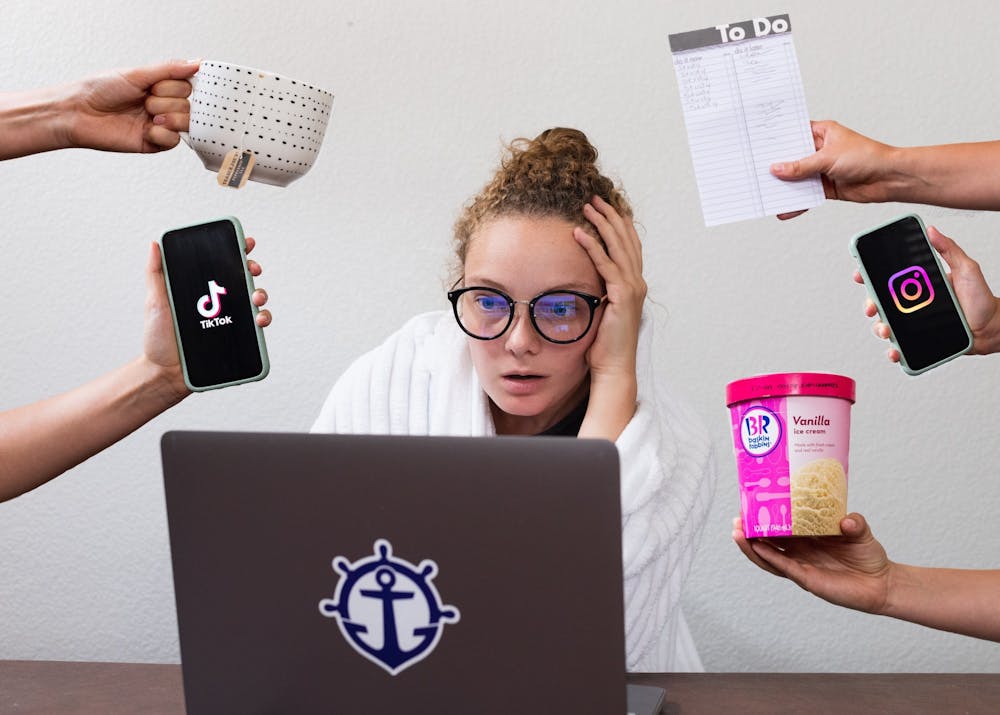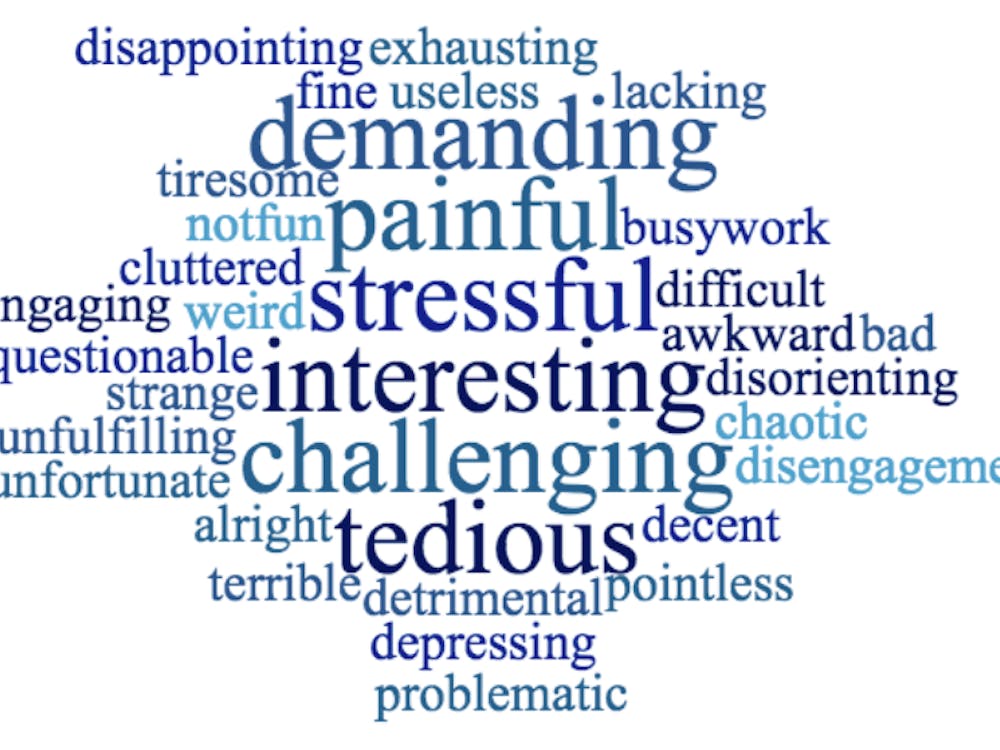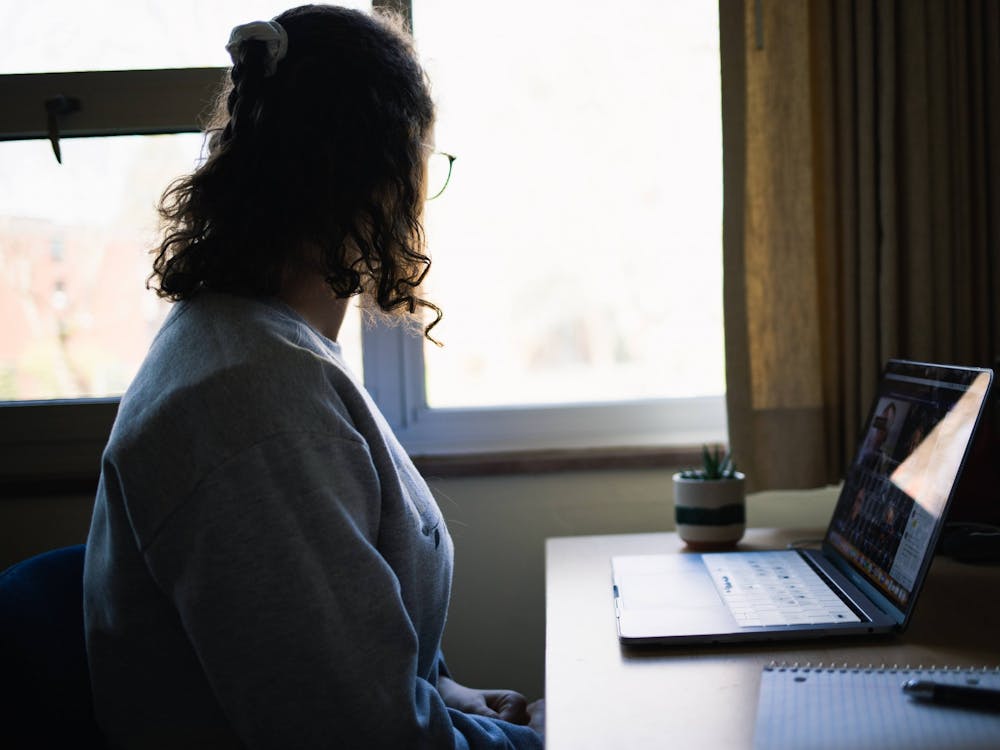You’re at your desk, logged into your Zoom class, trying desperately to keep your eyes and ears on only your professor. On your left, your phone is buzzing with texts that you can’t quite make out. Outside your window, the sun is out and your housemates are in the yard . . . what if you just turned off your camera and went outside for a break?
Remote classes may not have been your ideal plan this year, but now you've traded on-campus classes for Zoom calls and library study rooms for wherever you can find peace and quiet in your house. Without social interaction and the structure of regular school days, you may be struggling to stay focused and motivated.
The Beacon spoke to UP’s own psychology professors for some tips for staying focused and productive at home.
Get dressed and ready for your day (even if it’s just from the shoulders up)
While many people have taken full advantage of the fact that the Zoom camera only captures from the shoulders up, if you have the time and energy, it can be beneficial to get fully dressed and ready for your day.

Canva credit to Molly Lowney
“You’ve got to cut yourself some slack and give yourself grace when it takes all of your energy just to put on a shirt and dial in,” professor of psychology Dr. Sarina Saturn said. “But if it is possible to take the shower that you normally would, dress from head to toe, it puts your body in this academic mode.”
Have a designated work space
Have an area in your house that is dedicated to learning and studying. This helps your brain associate that area with school and helps you pay better attention in that space, while not associating it with another context or activity.

Canva credit to Molly Lowney
“That is going to help with retrieval, especially when you're in that same context when you're taking your assessments, writing your papers, or taking your tests and quizzes,” Saturn said. “We are better able to absorb information if we're in a scholarly context. And when it's test time, it's a lot easier to retrieve that information from our brains if we're in the same place that we learned that information.”
Avoid distractions
Working from your computer rather than being in a physical classroom gives students the unique, and sometimes unwelcome freedom to distinctly choose what to pay attention to.
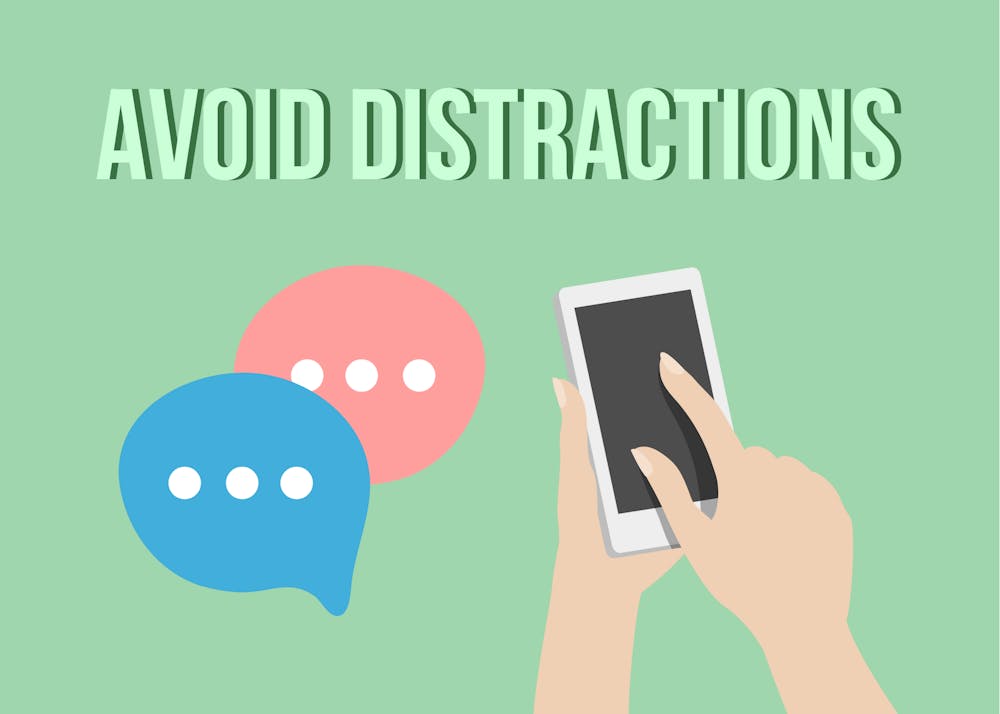
Canva credit to Molly Lowney
While it can be incredibly enticing at times, do not try to multitask while on Zoom. Studies have shown that the brain can not effectively multitask, but rather task switches constantly between the duties it is trying to simultaneously accomplish.
“It can be really tempting to have social media open while you are in lecture, but just as that would be something that you shouldn't be doing in a physical classroom, it’s the same thing,” professor of psychology Dr. Louisa Egan Brad said. “I think part of it is that we've trained ourselves over time that video input is entertainment, it's not education, so to transition to see this as an educational experience is going to require some effort.”
According to Saturn, it is beneficial to just keep your emails off, put your phone away, and close your web browser, as well as other things that can cause distractions.
Create a regular schedule
Maintaining regular hours throughout these uncertain times helps to establish a clear work-life balance. This can be seen through simple things such as creating a morning routine, going to class at regular times (even if it is asynchronous), eating meals on a fixed schedule, all followed by your daily homework. This strategy can attempt to emulate “regular life”, which is beneficial for staying organized and feeling more in control of daily life.
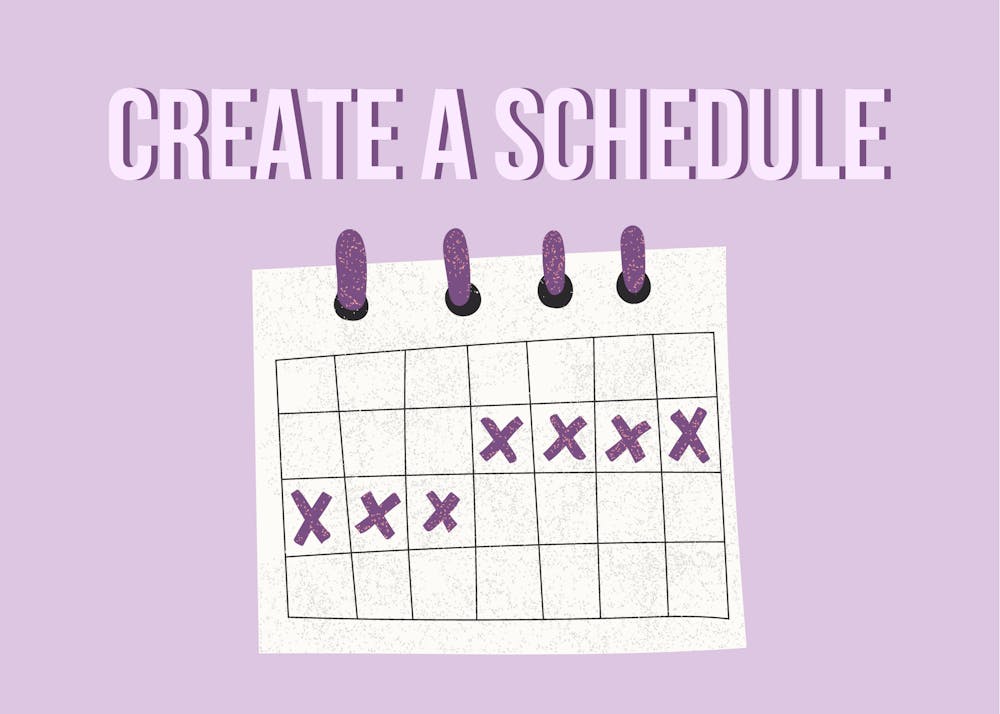
Canva credit to Molly Lowney
“However you organize, whether it's [with] a planner, or reminders on your phone, make sure that system is solid, because I think as the semester wears on, students' motivation typically decreases a little bit,” professor of psychology Renee Crowgey said. “So make sure that you have a built in structure to keep you going.”
A physical way to maintain a schedule is using a planner or calendar to write out assignments, tests and presentations. Planners tend to help with time management and ensure that you stay on track to get all of your tasks and assignments completed on time. Having one place with all assignments and meeting times written out can be instrumental in staying organized and productive. There is also nothing quite as satisfying as crossing a task off of a to do list.
Take breaks

Canva credit to Molly Lowney
Sometimes as a college student, it feels like there aren't even enough hours in a day to do basic (and very necessary) things, such as eating dinner and showering. On those days especially, it’s crucial to take breaks and reset before you return to studying. According to Egan Brad, taking time away from the computer and from studying can improve both focus and attention.
“Humans did not evolve to be sitting in front of a computer for this many hours a day,” Egan Brad said. “Go outside and do stuff that's physical, just to give your mind and body a break.”
Exercise self care
In the midst of this global pandemic, with stress and anxiety running high, it is more important than ever to practice self care. Utilizing things like stress balls, essential oils, happy lamps and weighted blankets can be very beneficial. According to Saturn, students are much better learners when they are exercising self care.
“We can pay attention more, we can learn and remember better if we are taking care of our emotional, social and physical needs,” Saturn said.

Canva credit to Molly Lowney
Self care means taking care of your mind as well as your body. Practices such as talking to a therapist when you need to, being selective about the people you surround yourself with, and knowing when your mental health is more important than a class or job are a deeper form of self care that will serve to protect you throughout the long semester.
Self care can also be seen through seeking support from your professors or participating in virtual campus events and club meetings held by the Health and Counseling Center and Active Minds.
According to Crowgey, challenging the negative thoughts and anxious feelings that you feel throughout the day can help to change the way you perceive them. This reframing can be beneficial to your mental and emotional health as well.
“I think that there's a ‘lets survive and get through this’ kind of mentality,” Crowgey said. “But I think that if you look from a cognitive behavioral standpoint, you can challenge that thought. Instead of just making it about survival, say, ‘How can I thrive in this?’ or ‘What can I learn about myself?’, that’s going to benefit you far past this virtual online platform learning.”
Havi Stewart is the Living editor for The Beacon. She can be reached at stewarth22@up.edu.



